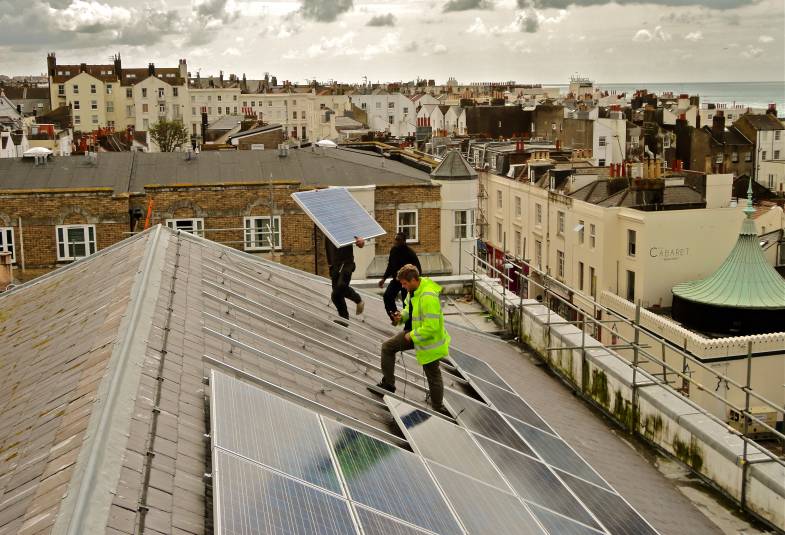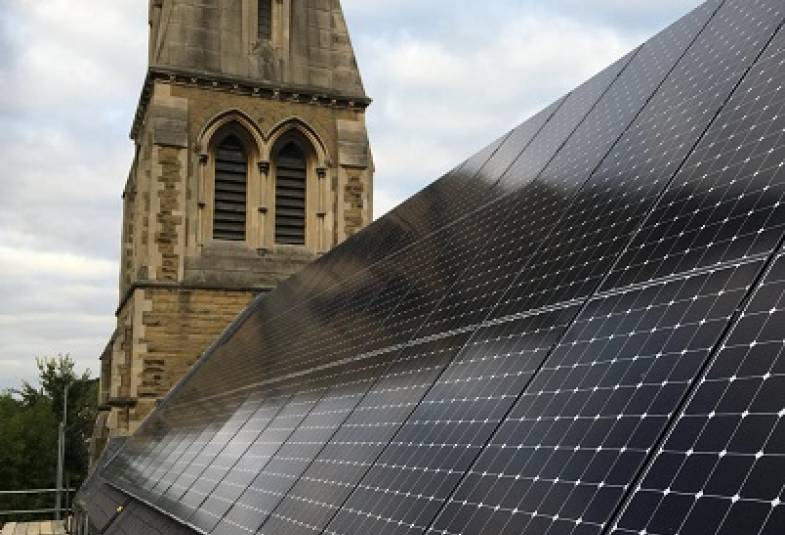
In February last year, the General Synod voted for a new target for all parts of the Church to work to become carbon net zero by 2030.
Heating buildings is one of the main sources of Greenhouse Gas emissions for the Church, along with electricity use and transport.
The CofE owns and operates around 40,000 buildings, including 42 cathedrals.
A significant proportion of the Church’s buildings are heritage and listed buildings. A challenge and an opportunity for the CofE, the majority cannot be retro-fitted with conventional energy-saving strategies like building insulation and cladding, yet these buildings retain enormous community value.
Becky Clark, Director of Cathedral and Church Buildings said: "The Church has set an ambitious aim – to achieve net zero carbon by 2030. This task, set by our governing body – the General Synod - in 2020, is only achievable with a clear plan.
"This partnership will allow us to fully assess the carbon emissions from churches and cathedrals, develop a realistic scenario for achieving net zero carbon, share knowledge, and access the latest research from Durham University.
"Through projects like this cathedral and church buildings are acting as trailblazers, showing how even the most significant historic buildings can make a real contribution to the care of creation and the fight against climate change."
The Church is also using its land to create opportunities for negative emissions by repurposing some land for carbon capture and habitat restoration schemes.

This project will build on DEIs extensive expertise in Decarbonising Heating and the insights gained from the Durham Heat Hub and Durham-led Network for Decarbonising Heating and Cooling.
The multi-disciplinary team from Durham University is led by Dr Andrew Smallbone (the Department of Engineering), and includes Dr Janie Ling Chin (Department of Engineering), Jacki Bell (Durham Heat Hub) and Prof. Robert Song (Department of Theology and Religion).
The NetworkHC team have developed a series of technology roadmaps which bring together industrial, academic, and other stakeholder viewpoints to understand and bring consensus to what the options are for meeting emission targets.
They identify the current state-of-the-art and its likely advancement in both technical and economic terms as we transition to a net-zero economy by 2050 (or earlier). These roadmaps will be used as a basis for developing different pathways to achieving net-zero carbon across the Church.
The DEI team will work with CofE’s Environment Programme and Church Buildings teams, Durham Cathedral, three parish churches in Durham Diocese (representing an urban parish, a suburban parish and a rural parish) and the renewable technology consultants, Renewable Energy Network Ltd.
The project will engage with a range of Church and community stakeholders, produce an energy audit of the Church sites, develop and model different scenarios for achieving net-zero carbon, and develop a roadmap for decarbonisation.
The action plan will quantify technically how and by when each necessary stage in this transition will take place over the next decade and will focus on church and cathedral buildings.
PhD students in DEI’s Centre for Doctoral Training in Energy will undertake an additional group project to scope out suitable decarbonisation approaches appropriate for the Church.
The PhD students have a variety of disciplinary backgrounds from the Sciences and Social Sciences and are all undertaking detailed research into sustainable energy issues. They will be able to draw on a range of methods and insights
More information
- Durham Energy Institute
- General Synod sets 2030 Net Zero carbon target (February 2020).